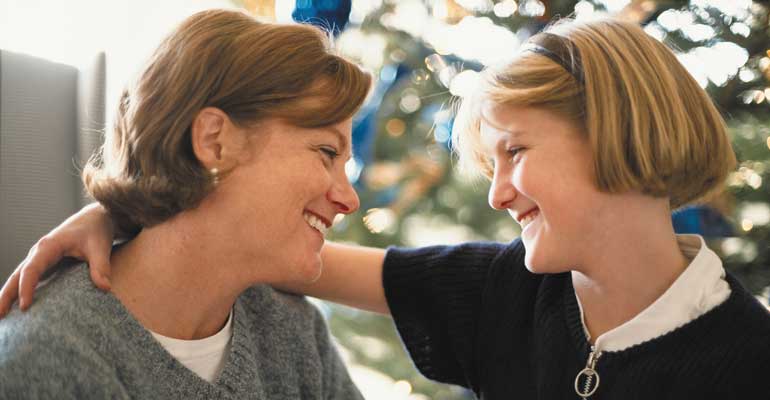It’s a question all children wrestle with, but the prospect of a parent’s death seems to carry extra anxiety for adoptees. Unlike children who grow up with biological parents, adoptees have already experienced the trauma of parental loss. Thus, the prospect is much more real to them.
Our children are sensitive to loss everywhere: in the death of a grandparent or adult friend, in the divorce of couples they know, or when a school chum moves away. Add the cataclysmic events children see on television, and it’s the rare child who won’t start thinking about such possibilities in her own household.
Adoptive parents may be too quick to dismiss their child’s inevitable question. “Don’t worry, honey, I’m not going anywhere,” you say reassuringly. But how can you be sure? Adoptive parents are generally older than average. Some will face life-threatening illnesses, and some will die before their children grow up.
While we tout our older-parent strengths of extra patience and life experience, our children see and worry about our aging bodies. They are sometimes more aware than we of the what-ifs in their lives.
Parents who want to help their children cope with anxious feelings first have to confront their own fears of death. Only then will they be able to discuss their child’s worries without being dismissive. They can model this by talking openly about things they are doing to take care of themselves. “I’m going for my annual check-up because I know how important it is to stay healthy.”
Most importantly, parents should make provisions for a child’s care in the event of illness, disability, or death. They should answer questions about these arrangements in a straightforward manner.
Children should know that their parents have adequate health and life insurance and that there are sufficient savings in case of an emergency. Parents should make and keep wills current, and they should involve their child in determining who would take over raising them in case of a tragedy.
Parents will also want to share their beliefs about what comes after death. Many children take comfort in religious doctrine.
Far-sighted parents can make family videotapes and photo albums, anticipating what their child would need to keep going in the event of a parent’s death. You might write a series of letters to be handed to your child at important points in her life: when she graduates from high school, marries, or has her first child. Ask a friend to be the keeper of these notes in the event of a death. In this way, children have not only memories, but a real sense of participation by a lost parent.
Hearing that parents, too, think about and plan for the what-ifs can be of great comfort to a child. It acknowledges that such worries are not only rational but wise. Addressing these issues openly relieves a child of the burden of lonely concern.


